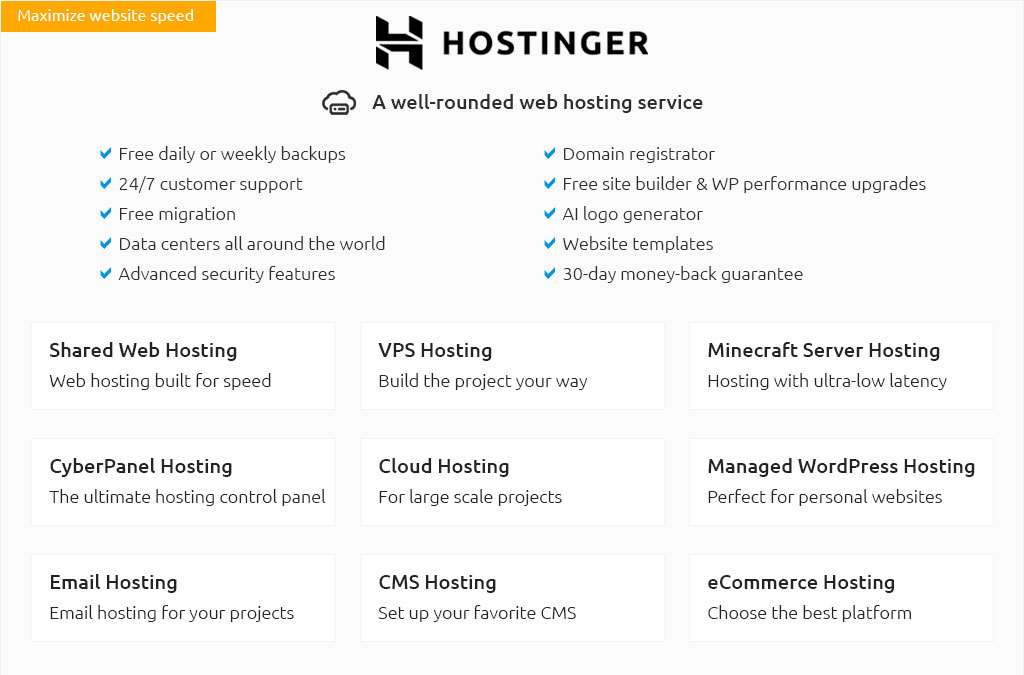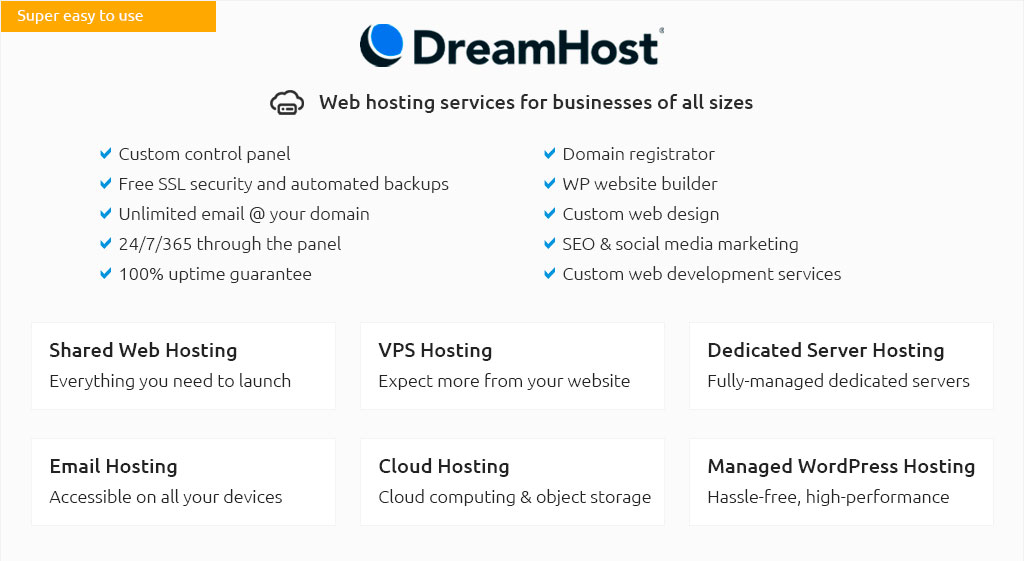 |
|||
 |
 |
 |
|
 |
|
 |
 |
 |
|||
 |
|||
 |
|||
 |
|||
 |
|||
 |
|||
 |
 |
Website Hosting Best Practices: A Comprehensive GuideIn the ever-evolving digital landscape, understanding the nuances of website hosting is crucial for businesses and individuals alike. With myriad options available, it's important to pinpoint best practices to optimize performance, cost, and reliability. Understanding Different Types of HostingShared HostingShared hosting is a cost-effective solution where multiple websites reside on a single server. While it's affordable, resources are shared, which can impact performance during traffic spikes. Dedicated HostingDedicated hosting provides a server solely for your website, offering enhanced performance and security. However, it comes at a higher cost and requires technical expertise. VPS HostingVirtual Private Server (VPS) hosting offers a middle ground, providing dedicated resources within a shared environment. It's ideal for growing websites needing more control. Key Factors to ConsiderPerformance and UptimeEnsure your hosting provider guarantees at least 99.9% uptime. Downtime affects user experience and search engine rankings. Check for robust performance metrics and customer reviews. Security FeaturesOpt for providers that offer SSL certificates, DDoS protection, and regular backups. Security is paramount to safeguard your data and maintain user trust. ScalabilityYour hosting solution should scale as your business grows. Evaluate options that allow easy upgrades without significant downtime. Cost Efficiency and SupportWhile cost is a critical factor, balance it with the quality of service and support. A slightly higher investment in a reputable provider can save you from future headaches. Consider exploring specialized services like a photo hosting solution if your site heavily relies on image content. Integrating Additional FeaturesSome hosting services offer integrated tools for website builders, email hosting, and e-commerce platforms. Evaluate these features based on your specific needs. For image-heavy sites, an image hosting site might provide additional benefits in terms of speed and reliability. FAQ Section
https://www.youtube.com/watch?v=5Kzp6A1kYj8
Discover the best web hosting options with my top 4 recommendations to ensure your website runs smoothly. https://www.shopify.com/blog/best-website-hosting-for-small-business
This guide to the best web hosting services simplifies the process. Here are the best web hosting services for small business owners. https://www.webhostingtalk.com/showthread.php?t=1905747
The best hosting provider differs from person to person because personal experience can vary from person to person with the same provider.
|